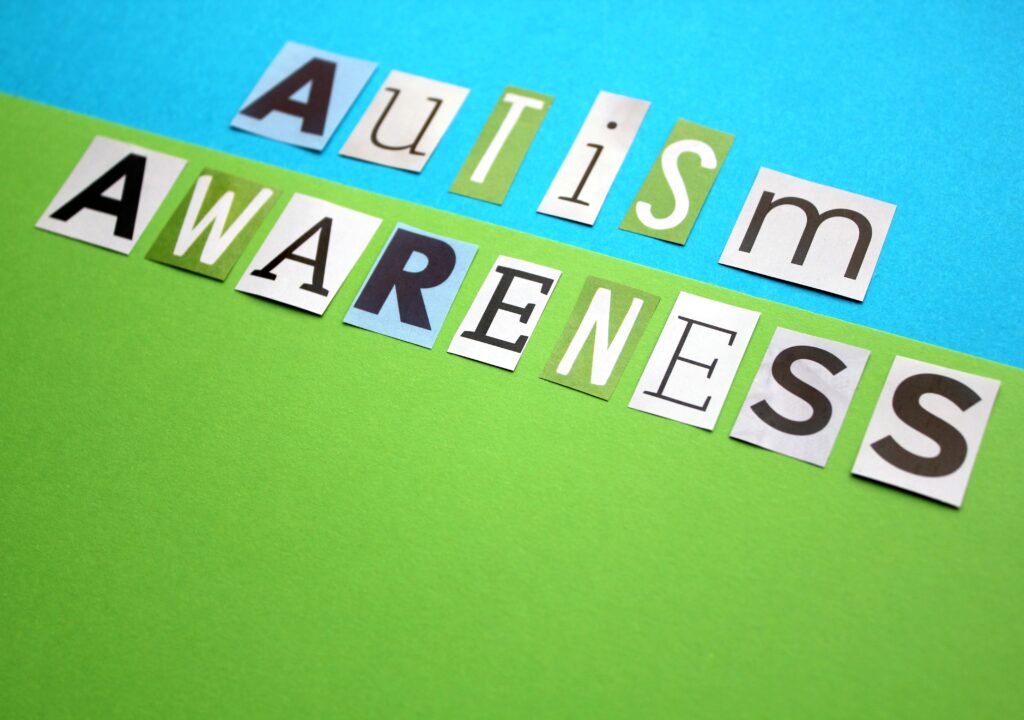Why Adult Autism Awareness Day is Important

Adult Autism Awareness Day is an essential occasion to bring attention to the unique experiences and challenges faced by adults on the autism spectrum. Autism is often associated with children, but the reality is that autism does not fade as individuals age. In fact, adult autism can present itself in a wide variety of ways that affect everything from social interactions to career advancement. On this special day, it’s important to shine a light on the experiences of neurodivergent adults, raise awareness of the challenges they face, and highlight the importance of creating inclusive environments—especially in workplaces.
This blog will explore what Adult Autism Awareness Day is, why it’s essential to recognise adult autism, especially in the workplace, and how the impact of adult autism can be mitigated with the right support. Furthermore, we’ll touch upon how organisations, such as Qualia Academy, offer neurodiversity training programs that equip employees and managers with the tools and strategies necessary for building inclusive work environments that support neurodivergent individuals.
What is Adult Autism Awareness Day?
Adult Autism Awareness Day is an observance dedicated to raising awareness about autism spectrum disorder (ASD) in adults. While autism is often recognised in childhood, many adults—especially those without a formal diagnosis—struggle with the challenges of living with autism throughout their lives. This day seeks to highlight the significance of recognising autism in adults and providing support and resources to help them thrive.
The day provides a platform for educating the public and promoting a better understanding of autism in adulthood. It also encourages organisations, educators, and workplaces to consider how they can become more inclusive of neurodivergent individuals. The focus is on promoting empathy, reducing stigma, and highlighting the fact that autism is a lifelong condition that requires continued support beyond childhood.
Why is Recognising Adult Autism Important?
Autism is a spectrum, and each individual’s experience with the condition is unique. While many people may have been diagnosed in childhood, others go undiagnosed or misdiagnosed until adulthood. This is especially true for individuals with high-functioning autism or those who have developed coping mechanisms that mask their symptoms. As a result, many adults may go through life without the support or understanding they need to manage their condition effectively.
Recognising adult autism is important for several reasons:
1. Social and Emotional Support
Adults with autism often face challenges in social situations due to difficulties in communication, interpreting social cues, or managing sensory sensitivities. These challenges can impact personal relationships, friendships, and even the ability to interact effectively in community or professional settings. Recognising autism in adults allows for more targeted support, helping individuals navigate social situations and reduce feelings of isolation.
2. Workplace Inclusivity
Adults with autism may have difficulty with traditional workplace environments. Sensory overload, the need for routine, and difficulty understanding social interactions or unwritten workplace norms can make professional life particularly challenging. Employers who are aware of adult autism and who actively create inclusive spaces for neurodivergent employees help to ensure that individuals can succeed and thrive in their roles.
By understanding the specific needs of neurodivergent employees, employers can make necessary adjustments to help them be successful. This can include modifications to the physical workspace, communication strategies, and the provision of clear and consistent expectations. These adjustments create an environment where neurodivergent individuals feel valued and supported, which contributes to improved job satisfaction and productivity.
3. Access to Services and Resources
Many adults with autism do not have access to the resources and support systems that they need to thrive. These resources could include specialised healthcare, therapy, social skills training, or support groups. Raising awareness of adult autism helps to highlight the importance of providing these services to the adult population.
4. Improving the Quality of Life
By recognising the challenges faced by adults with autism, society can work toward improving their overall quality of life. This involves making changes in community spaces, offering employment opportunities, and fostering an inclusive culture. With the right support, adults with autism can live fulfilling and independent lives, contributing to society in meaningful ways.
Adult Autism in the Workplace: Challenges and Solutions
Workplaces play a significant role in the lives of adults with autism. The work environment can either be a place where individuals thrive or a place where they feel overwhelmed, isolated, or misunderstood. Understanding the challenges faced by neurodivergent individuals is crucial to ensuring that workplaces are inclusive and supportive.
1. Sensory Sensitivities
One of the common challenges for adults with autism in the workplace is sensory sensitivities. This could include sensitivity to lights, sounds, smells, or textures, which can cause discomfort or anxiety. In a traditional office environment, fluorescent lights, loud noises, or strong scents can create a challenging atmosphere for neurodivergent individuals. By being aware of these sensitivities and making adjustments, such as offering quiet spaces or allowing flexible working hours, employers can help employees with autism feel more comfortable and focused.
2. Difficulty with Social Interactions
Social interactions in the workplace—whether it’s participating in team meetings, networking events, or casual office conversations—can be difficult for adults with autism. They may struggle with reading nonverbal cues, understanding workplace dynamics, or knowing how to engage in social situations. This can lead to misunderstandings or anxiety.
Employers can assist by providing clear communication and training to managers on how to interact with neurodivergent employees. Encouraging a culture of understanding and respect for neurodiversity can create an environment where social challenges are minimised, and everyone feels included.
3. Routine and Structure
Many adults with autism thrive in environments that offer routine and structure. They may find it difficult to adapt to rapid changes, unexpected meetings, or shifts in workplace culture. A lack of routine can be overwhelming, leading to stress or a decrease in job performance. To support adults with autism, employers can create predictable schedules, set clear expectations, and provide structure whenever possible.
4. Communication Styles
Effective communication is key to any workplace, but neurodivergent individuals may have unique communication styles that differ from those of their neurotypical colleagues. For example, some adults with autism may have difficulty with verbal communication, while others may communicate in a very direct or literal manner. This can sometimes lead to misunderstandings or misinterpretations of intent.
Providing training on how to adapt communication to accommodate neurodivergent individuals, as well as encouraging clear and open dialogue, can help to bridge the communication gap. By fostering an inclusive workplace culture, organisations can ensure that all employees are able to contribute effectively and feel understood.
Qualia Academy: Empowering Workplaces with Neurodiversity Training
At Qualia Academy, we recognise the importance of building inclusive workplaces that are supportive of neurodivergent individuals. Our standalone neurodiversity training is designed to equip employees and managers with practical and social approaches to creating appealing workplaces for neurodivergent individuals, including those with adult autism.
1. Insights into Neurodiversity
Our neurodiversity training helps participants gain a deeper understanding of neurodivergent conditions, including adult autism. Through interactive workshops and training sessions, employees and managers learn about the different ways autism can manifest in the workplace and how to provide effective support.
2. Practical Strategies for Inclusivity
Inclusivity is more than just a buzzword—it’s a core value that should be embedded in every workplace. Our training teaches practical strategies that can be implemented immediately, such as how to modify workspaces, how to communicate with neurodivergent colleagues, and how to foster an environment that supports diversity. We help participants understand how to create a culture of respect, empathy, and collaboration that benefits everyone.
3. Tools to Foster Positive Work Environments
Creating a positive work environment is crucial for employee well-being. For neurodivergent individuals, a supportive and accommodating environment is essential for them to succeed. Our training equips participants with the tools to identify potential barriers and remove them. From highlighting access to sensory-friendly spaces to implementing flexible work hours, we show employers how to create workplaces where neurodivergent employees can thrive, especially through the Access To Work Scheme.
4. Boosting Employee Satisfaction and Retention
When neurodivergent employees feel supported, they are more likely to be engaged, productive, and satisfied in their roles. This leads to higher retention rates and greater overall job satisfaction. Investing in neurodiversity training can help employers reduce turnover, cut recruitment costs, and foster a more loyal workforce.
5. Supporting Compliance with Diversity Regulations
In addition to the ethical benefits of creating an inclusive workplace, offering neurodiversity training helps organisations comply with diversity and inclusion regulations. By demonstrating a commitment to inclusivity, businesses can meet legal requirements while fostering an environment where all employees can succeed.
If you are interested feel free to contact is through our contact details here.









